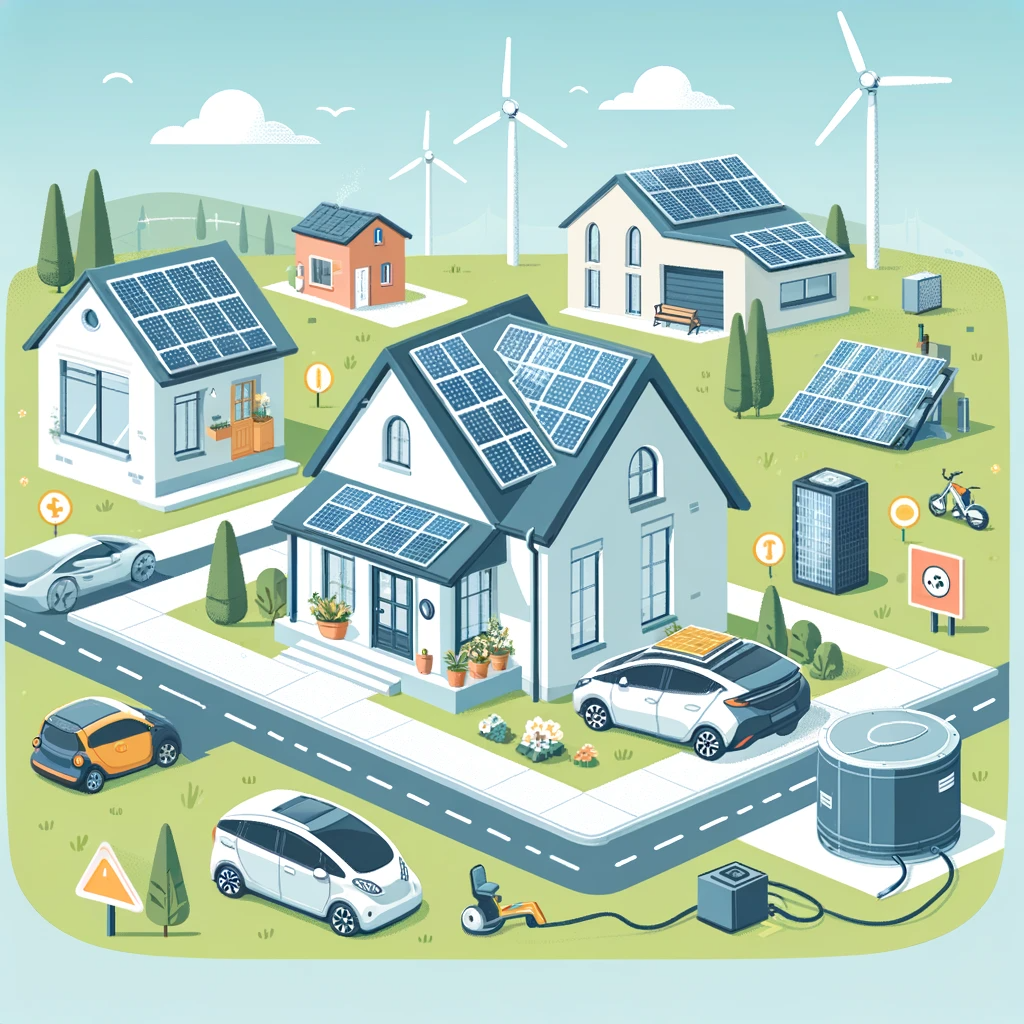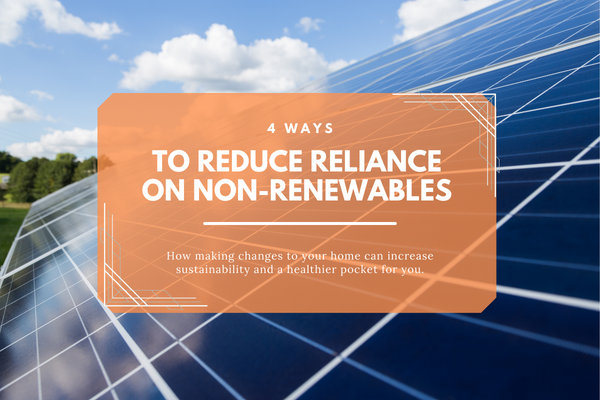In today’s world, the importance of reducing our dependence on non-renewable resources cannot be overstated. Non-renewable resources, such as fossil fuels, are finite and contribute significantly to environmental degradation and climate change. Renewable energy sources, including solar panels, heat pumps, electric vehicles (EVs), and electricity storage systems, offer sustainable and eco-friendly alternatives. This article delves into these renewable energy solutions, highlighting their benefits and the non-renewable resources they help conserve.

1. Solar Panels: Harnessing the Sun’s Power
Solar panels, a cornerstone of renewable energy, convert sunlight into electricity. They are sustainable, renewable, and plentiful. The cost of using solar energy is decreasing annually, making it an increasingly attractive option. Solar panels not only reduce dependence on fossil fuels but also offer financial returns and lower utility bills. Additionally, solar energy systems can increase a home’s value. For instance,
In 2021 Solar Energy UK produced a study that found that solar panels could increase the value of a home by 0.9% to 2%.
What’s more, some mortgage lenders are offering assistance with solar panels if you have an existing mortgage with them, we found the following offers.
AND
Nationwides 0% Green Additional Borrowing Scheme
2. Heat Pumps: Efficient Heating and Cooling
Heat pumps are an efficient way to reduce reliance on non-renewable energy sources for heating and cooling. These systems use the ground as both a heat source and a sink, leveraging the consistent ground temperatures to transfer heat to or from a home.
They achieve efficiencies two to three times greater than air source heat pumps and are durable and long-lasting. By using these systems, homeowners can reduce reliance on gas, save energy, lower utility bills, and reduce their carbon footprint.
Now is a great time to invest in a heat pump, especially as the UK government is not only increasing heat pump grants but also taking steps to promote sustainability
3. Electric Vehicles (EVs): A Greener Way to Travel
Electric vehicles are pivotal in reducing reliance on petroleum-based fuels. On average, replacing a gas-powered car with an EV in the United States slashes carbon pollution by about two-thirds over the car’s lifespan.
As the grid becomes cleaner, EVs become even more environmentally friendly. Driving an EV also builds momentum for market transformation, reducing prices for future consumers and accelerating the deployment of EV charging infrastructure.
4. Electricity Storage: Enhancing Energy Efficiency
Electricity storage systems, including batteries, play a crucial role in renewable energy utilization. They store excess energy generated by renewable sources like solar panels and wind turbines for later use, ensuring a consistent energy supply even when the sun isn’t shining or the wind isn’t blowing. This reduces reliance on non-renewable energy sources, especially during peak demand times.
Benefits of Renewable Energy Solutions
The benefits of transitioning to renewable energy solutions are extensive:
- Environmental Impact: Renewable energy significantly reduces greenhouse gas emissions, combating climate change. For example, each kilowatt-hour (kWh) of solar-generated electricity substantially cuts CO2 emissions.
- Economic Savings: Renewable energy systems can offer financial returns and lower utility bills. They also increase property values and create job opportunities in renewable energy industries.
- Energy Independence: By adopting renewable energy, countries can reduce their dependence on imported fuels, enhancing national security and energy independence.
- Health Benefits: Renewable energy sources contribute to better air quality, leading to improved public health outcomes.
Conclusion: The transition to renewable energy sources like solar panels, heat pumps, EVs, and electricity storage is not just an environmental imperative but also a practical and economical choice. By embracing these technologies, we can significantly reduce our dependence on non-renewable resources, paving the way for a sustainable and cleaner future.


